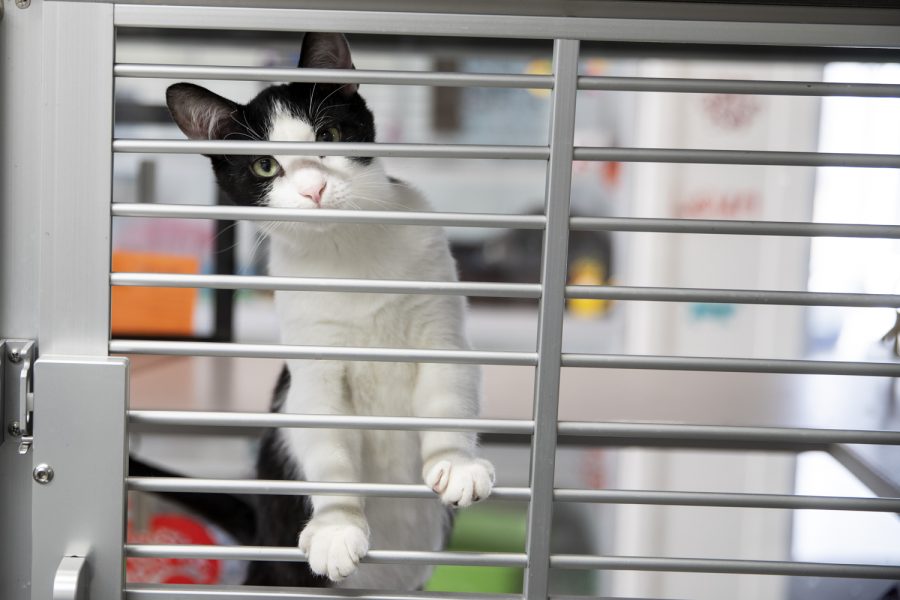Coming to college can be hard, especially when it means leaving behind beloved pets.
Fortunately, the Iowa City Animal Care and Adoption Center is nearly overflowing with animals and is always looking for volunteers.
Unfortunately, the center isn’t incredibly accessible to students, particularly those without a car.
In the best interest of the students and animals, the university, along with the adoption center, should aim to become more intertwined.
Animals are good for mental health. Pets can increase dopamine, serotonin, and oxytocin levels while reducing feelings of loneliness and depression. Students struggling with difficult class loads, work, and activities could benefit from some furry friends.
Since these interactions could also count as service hours, it would be an excellent way to meet any volunteering goals or requirements.
The interaction is equally beneficial for the animals, as it would help socialize them, provide exercise — which also benefits the students — and reduce their stress levels. All of these benefits increase their chances of adoption.
Although the University of Iowa has a licensed therapy dog, Drax, a lovable St. Bernard, it can be difficult for students to see him. Drax’s handler holds office hours for him from 12-2 p.m., but this is a limited window for students taking classes. The office hours are held at the Field House, which isn’t close to most classrooms. Additionally, one dog for nearly 25,000 students isn’t exactly a fair ratio.
Jennifer Read, programs director at the Iowa City Animal Care and Adoption Center, said they were at capacity for dogs and nearly at capacity for cats, underscoring the need for more volunteers.
The process of becoming a volunteer at the center is relatively simple. It begins with an orientation and an orientation quiz, which can be done independently when the student has time. This is followed by an application and training.
Some sororities, some fraternities, and the Animal Health Club do volunteer and engage more intimately with the center — a step in the right direction. However, this involvement needs to be expanded.
Only about 14 percent of the undergraduate student population is involved in Greek life, and even fewer visit the center. The Animal Health Club doesn’t visit the center as frequently as would be ideal for both students and the animals, focusing more on other aspects of the club.
Although the club is open to all majors, it is more heavily advertised to students on pre-veterinary or pre-health tracks, which may discourage other students from joining, especially when activities are more health-oriented than focused on animal interaction.
Ideally, a system or club should be established to provide students with rides to the Iowa City Animal Care and Adoption center once a week. Establishing a club at the university, like becoming a volunteer for the shelter, is easy.
The entire process is laid out in eight concise steps under the UI Division of Student Life page, which includes ensuring the proposed organization does not already exist, identifying five students who are willing to be members, scheduling and attending a pre-registration meeting, joining the Engage platform, a review of the application by the Student Organization Review Committee, or SORC, and a follow-up SORC meeting if necessary. Finally, at least one member must attend an orientation led by staff.
Additionally, perhaps bringing a few animals to campus occasionally for visits would be beneficial.
Penn State is one university that implemented a club like this: Penn State Animal Volunteers.
“I love volunteering at the animal shelter because I love being around animals,” Taylor Frank, the club’s president, said. “It relieves my stress levels and takes me out of my studies.”
The club’s treasurer, Cara Casilli, added “When you’re stressed out and miss your pets at home, it’s great to see how happy the dogs at the shelter are to see you.”
For now, student involvement with the center needs to be encouraged until long-term, accessible solutions can be implemented and perhaps expanded to other shelters in the Iowa City area.



